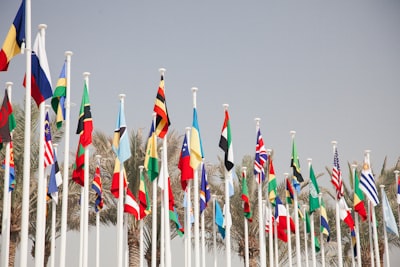Overview
Recognition of governments is a principle in international law through which a state acknowledges the legal status or legitimacy of another state's government. This recognition can have significant legal, political, and economic consequences, influencing diplomatic relations, trade, and access to international organizations. It is particularly salient in instances where regime change has occurred through unconstitutional means, internal conflict, or external intervention.
Types of Recognition
There are two primary forms of recognition:
De Facto Recognition: Acknowledges that a government has effective control over a territory and population but does not imply approval or legitimacy. De facto recognition may be provisional or temporary.
De Jure Recognition: Implies full legal acceptance of a government as the legitimate authority of a state. It is more formal and often follows de facto recognition after a period of stability or compliance with international norms.
Criteria for Recognition
Generally, states assess several criteria before extending recognition:
- Effective control over national territory
- Popular support or acquiescence
- Capacity to fulfill international obligations
- Adherence to international norms, including human rights
However, states may exercise discretion and political judgment, influenced by strategic, ideological, or economic interests.
Consequences of Recognition
Recognition confers certain benefits and obligations:
- Establishment of diplomatic relations
- Eligibility to conclude treaties
- Access to international courts and organizations
- Ability to engage in official commerce
Non-recognition may lead to isolation, sanctions, or loss of access to international resources and forums.
Controversies and Examples
Recognition can be contentious, particularly in cases of contested governments, coups, or civil wars. Notable examples include:
- The recognition (or non-recognition) of governments following revolutions (e.g., the Bolsheviks in Russia, 1917; the Islamic Republic of Iran, 1979)
- Competing governments, as seen in Libya (post-2011), Venezuela, and Myanmar
- Ongoing debate over territorial disputes (e.g., Taiwan, Palestine)
The question of recognition is also central in situations where major powers diverge in their approaches, leading to divides in the international community.
International Law and Non-Intervention
International law does not strictly require states to recognize new governments. Customs and precedents tend to influence state decisions. The principle of non-intervention suggests that external states should not interfere in the internal affairs of other countries, though practice often diverges for strategic reasons.
Multilateral Recognition
International organizations, such as the United Nations, may serve as forums where issues of legitimacy and recognition are debated. Admission to the UN or recognition by regional groupings can reinforce or challenge a government’s standing in the international system.
Conclusion
The recognition of governments remains a crucial, complex aspect of international relations, shaping diplomatic and economic engagement. It serves not only as a legal formality but as an expression of the political will and interests of states within the international community.

Comments
No comments yet. Be the first to comment!